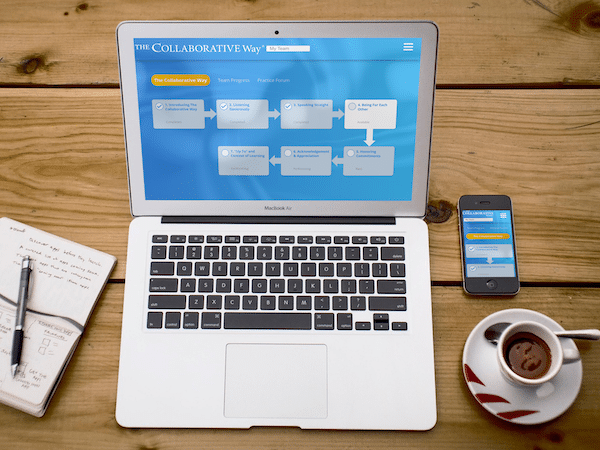A powerful and effective way to work through conflict, influence others, and align or recenter team members is through listening for commitment.
Listening for commitment is listening to discover and appreciate what someone cares deeply about. All of us care deeply about something; we all have some kind of underlying commitment that guides our actions and determines what we stand for and support. When you bring people’s underlying commitment forward through your listening, great things often happen—new possibilities emerge; conflict becomes easier to navigate; your influence increases; and teams align around a course of action.
1) Awaken Possibilities
When someone is struggling to figure out how to move forward in the face of a tough issue, listening for what they care deeply about supports them in finding new ways to deal effectively with the situation. By bringing the other person’s underlying commitment forward, you help them re-center and get back in touch with their own commitment. This often shifts how they view the situation. Rather than feeling at the effect of the issue or circumstance, they stand grounded in their commitment. This is a much more powerful place from which to approach a tough issue, and often new possibilities emerge for how to move forward.
2) Navigate conflict
Normally, our automatic way of responding to conflict is to try to get other people to see why our perspective is the right perspective. Unfortunately, this kind of response only ends up fueling conflict—everyone ends up trying to prove they’re right. When you catch yourself in this automatic way of responding to conflict, try to shift into listening for the other person’s commitment. Once you discover what the other person is committed to, you’ll often realize that the two of you share an underlying commitment, at least on some level. By connecting with this common commitment, or at a minimum appreciating their own commitment, it becomes much easier to find new possibilities for working together and you’ll create a much more effective pathway of navigating conflict.
3) Increase influence
Often we fail to have the influence we want because we fail to listen for commitment. If you want to have real influence, you have to understand what someone is committed to and what they care deeply about. If you don’t know what they care deeply about, you won’t be able to influence their actions. Listen underneath their words for their commitment and check in with them to see if you’re right. Speak to what they care about and are committed to, and you will have a much stronger platform from which to influence their actions.
4) Gain alignment
When your team or work group is having difficulty aligning on a course of action, it’s often useful to identify the underlying commitment: What are we trying to move forward by taking this course of action? Many times it’s much easier to gain alignment for the underlying commitment than for the current course of action. Once you establish alignment for the underlying commitment, you’ll either have a greater opening to gain alignment for the current course of action or discover that a different course of action would be more forwarding to what you are up to.
KEY ACTION: Practice listening for commitment. Listen underneath what the person is saying to discover what they are committed to and what they care deeply about. Next, check in with them to see if you are accurately understanding their commitment. You will often find that by listening and bringing forward someone’s commitment, you resolve issues more quickly, transform difficult situations, and open the door to finding new solutions.
Have you seen the benefits of listening for commitment in your workplace? If so, please leave a comment below. We’d love to hear from you!


